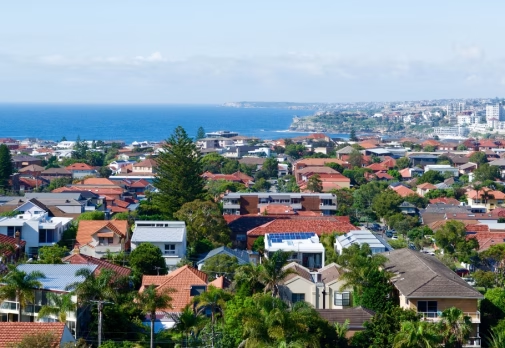

Published September 2, 2025
by Ryan Sheppard
A big change, arriving fast
From 1 October 2025, the Government’s expanded First Home Guarantee kicks in, letting all first-home buyers purchase with a 5% deposit while avoiding Lenders Mortgage Insurance (LMI) thanks to a government guarantee. The rollout has been brought forward and will run with no caps on places and no income limits, alongside higher property-price caps to reflect current market values.
How it works
Under the expanded scheme, you bring 5%; the Government guarantees part of the shortfall so lenders can write the loan without LMI. That insurance saving can be significant: the Government estimates buyers will collectively avoid around $1.5 billion in LMI in the first year alone.
New property-price caps (from 1 Oct 2025)
Sydney: $1,500,000
Melbourne: $950,000
Brisbane: $1,000,000
Adelaide: $900,000
Perth: $850,000
Hobart: $700,000
ACT: $1,000,000
Regional/other areas: caps lifted proportionately by state
Example from the Government’s release: A Brisbane first-home buyer could purchase a $1,000,000 home with a $50,000 deposit, potentially saving about $42,000 in LMI and shaving years off deposit-saving time.
Who this helps most
Buyers who are already close to a deposit and want to enter sooner.
Households with solid income stability but limited savings time (e.g., rising rents).
Those in markets where new caps actually match typical entry-level prices.
Source: ABC News
The catches (read before you leap)
Bigger mortgage = bigger repayments. A 5% deposit increases your leverage, so you’ll need strong buffers for rate moves and living-cost shocks.
Price-pressure risk. Expanding eligibility (no income caps, unlimited places) can lift demand faster than supply, which multiple analyses warn could push prices higher in targeted segments.
Source: The Australian & News.com
Rate-cut backdrop
The RBA lowered the cash rate to 3.60% on 12 August 2025, its third cut of the year, taking cumulative easing to 75 bps in 2025. That improves borrowing capacity for many buyers — but it also supports demand at the same time supply remains tight. Plan with both effects in mind.
Source: RBA
What to do next
Price-test your options at both today’s rate and +1.0% stress to avoid thin margins.
Model rent vs buy properly (total cost of ownership, not just repayments).
Check your cap for your city/region and confirm a lender actually offers suitable products under the scheme.
Set buffers: 3–6 months of living and loan costs is a good starting point.
Keep emotions in check: if the numbers don’t work, don’t stretch.
Source: Housing Australia
The bottom line
For the right buyer, this is a genuine shortcut: years shaved off deposit saving and LMI costs avoided. For others, it risks becoming a price-pump that swaps deposit pain for long-term repayment strain. The win is in the maths, not the headline.
Want the numbers run on your situation?
Let’s map out repayments, buffers, and your best path to buying with confidence.
👉Let’s discuss. Book a meeting today.
